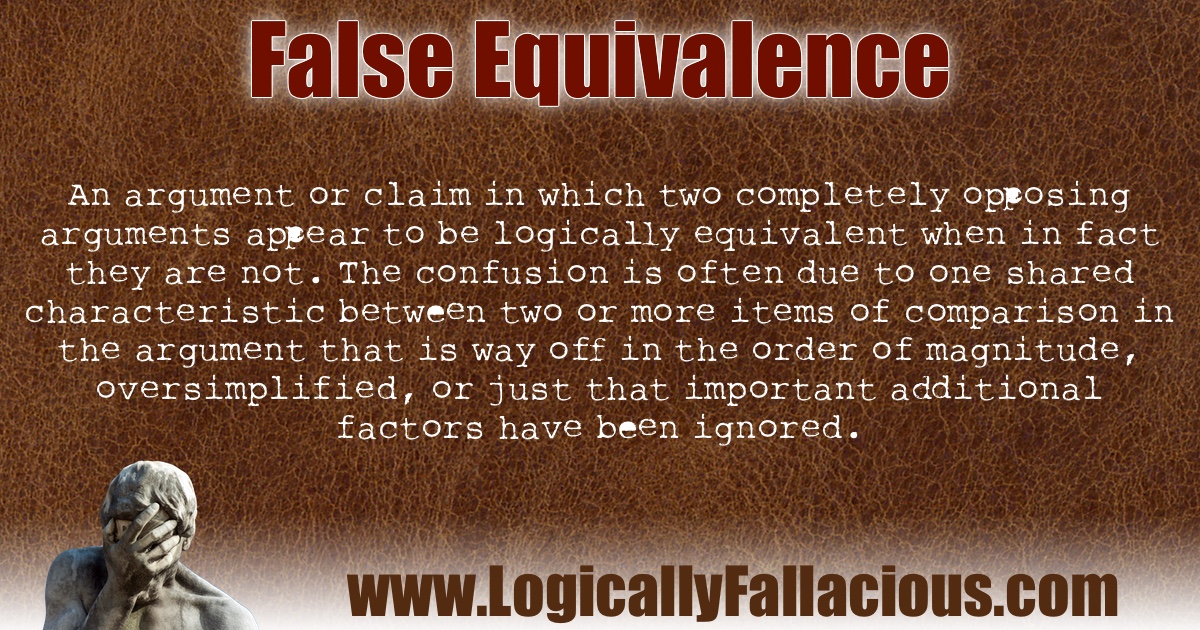Become an active member of our fallacy-discussing community (or just become a lurker!)
Description: An argument or claim in which two completely opposing arguments appear to be logically equivalent when in fact they are not. The confusion is often due to one shared characteristic between two or more items of comparison in the argument that is way off in the order of magnitude, oversimplified, or just that important additional factors have been ignored.
Logical Form:
Thing 1 and thing 2 both share characteristic A.
Therefore, things 1 and 2 are equal.
Example #1:
President Petutti ordered a military strike that killed many civilians. He is no different than any other mass murder and he belongs in prison!
Explanation: Both president Petutti and a mass murder share the characteristic that something they did resulted in the death of civilians. However, the circumstances, the level of responsibility, and the intent are significantly different for the president than the typical mass murder and ignoring these factors is unreasonable, thus makes the argument fallacious.
Example #2: Using the second amendment as justification to allow civilians to own nuclear submarines.
Explanation: In this case, the first "thing" is the weapon as understood at the time the second amendment was passed. The second "thing" of comparison is the nuclear submarine, also a weapon, but one of significantly different magnitude. This example also introduces the difference between a legal justification and an argumentative one (see appeal to the law).
Exception: Like most fallacies, this is one of degree rather than kind. The order of magnitude can be debated. Some may exaggerate this order of magnitude claiming a fallacy where it would be unreasonable to do so.
Tip: Listen and read carefully. Often, people will make analogies and others will interpret them as claims of equivalence.

References:
This is a logical fallacy frequently used on the Internet. No academic sources could be found.
Questions about this fallacy? Ask our community!
Uncomfortable Ideas: Facts don't care about feelings. Science isn't concerned about sensibilities. And reality couldn't care less about rage.
This is a book about uncomfortable ideas—the reasons we avoid them, the reasons we shouldn’t, and discussion of dozens of examples that might infuriate you, offend you, or at least make you uncomfortable.
Many of our ideas about the world are based more on feelings than facts, sensibilities than science, and rage than reality. We gravitate toward ideas that make us feel comfortable in areas such as religion, politics, philosophy, social justice, love and sex, humanity, and morality. We avoid ideas that make us feel uncomfortable. This avoidance is a largely unconscious process that affects our judgment and gets in the way of our ability to reach rational and reasonable conclusions. By understanding how our mind works in this area, we can start embracing uncomfortable ideas and be better informed, be more understanding of others, and make better decisions in all areas of life.
Get 20% off this book and all Bo's books*. Use the promotion code: websiteusers
* This is for the author's bookstore only. Applies to autographed hardcover, audiobook, and ebook.